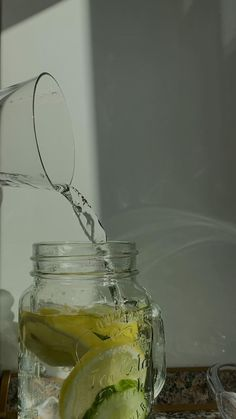Detoxing 101: What Is a Detox, and Does Your Body Really Need It?
Detoxification, often referred to as detox, is a process aimed at eliminating toxins from the body. This concept has been practiced for centuries across various cultures, including Ayurvedic and Chinese medicine. The primary goal of detoxification is to cleanse the blood by removing impurities, primarily through the liver, kidneys, intestines, lungs, lymphatic system, and skin[1][2].
### **What Is Detoxification?**
Detoxification can be defined as the body's natural process of neutralizing and eliminating harmful substances. The liver plays a crucial role in this process by converting toxic substances into harmless compounds that can be excreted through urine or feces. Daily exposure to environmental toxins—such as pollutants, chemicals in food, and synthetic substances in cosmetics—can overwhelm these natural detox systems, prompting many individuals to seek additional detox methods[2][3].
### **Do You Really Need to Detox?**
While the body is equipped with its own detoxification systems, certain symptoms may indicate that a detox regimen could be beneficial. Common signs suggesting a need for detox include:
- **Unexplained fatigue**
- **Poor gastrointestinal elimination**
- **Skin irritations or blemishes**
- **Frequent allergies or infections**
- **Mood swings and emotional instability**
These symptoms may stem from accumulated toxins affecting overall health and well-being[2][3]. However, it's essential to approach detoxification with caution; certain groups—such as children and individuals with chronic health conditions—should avoid intensive detox programs without medical supervision[1].
### **Methods of Detoxification**
Detox diets vary widely in their approaches and intensity. Common methods include:
- **Fasting**: Short-term fasting can give the digestive system a break.
- **Juice Cleanses**: Consuming only fruit and vegetable juices for several days.
- **Elimination Diets**: Removing processed foods, alcohol, caffeine, and sugars from the diet.
- **Herbal Supplements**: Using specific herbs believed to support liver function.
While many people report feeling revitalized after detox diets, scientific evidence supporting their efficacy is limited. Most health professionals emphasize that the body’s natural detox systems are usually sufficient for maintaining health[3][4].
### **Potential Benefits and Risks**
The potential benefits of detox diets may include improved energy levels, better digestion, and enhanced immune function due to the elimination of processed foods and increased intake of fruits and vegetables. However, these diets can also pose risks such as nutrient deficiencies, fatigue, irritability, and other adverse effects if not properly managed[3][5].
### **Conclusion**
In summary, while detoxification is a natural process that the body performs daily, certain lifestyle changes can enhance its efficiency. Rather than relying solely on short-term detox diets, adopting a long-term approach focused on clean eating and reducing toxin exposure may provide more sustainable health benefits. Always consult with healthcare professionals before starting any detox regimen to ensure it aligns with your individual health needs.
Citations:
[1] https://www.gaiam.com/blogs/discover/10-ways-to-detoxify-your-body
[2] https://www.doconline.com/blog/what-is-detox-and-how-do-you-know-if-your-body-needs-it
[3] https://www.healthline.com/nutrition/detox-diets-101
[4] https://groundandroot.com/blog/detox-101/
[5] https://nourished.com/detox-101-why-you-need-this-healing-practice/
[6] https://physiolifenutrition.com/blogs/news/6007808-detox-101
[7] https://mapi.com/blogs/articles/ayurvedic-detox-internal-cleansing-101
[8] https://blog.bioticsresearch.com/detox-101


Comments
Post a Comment